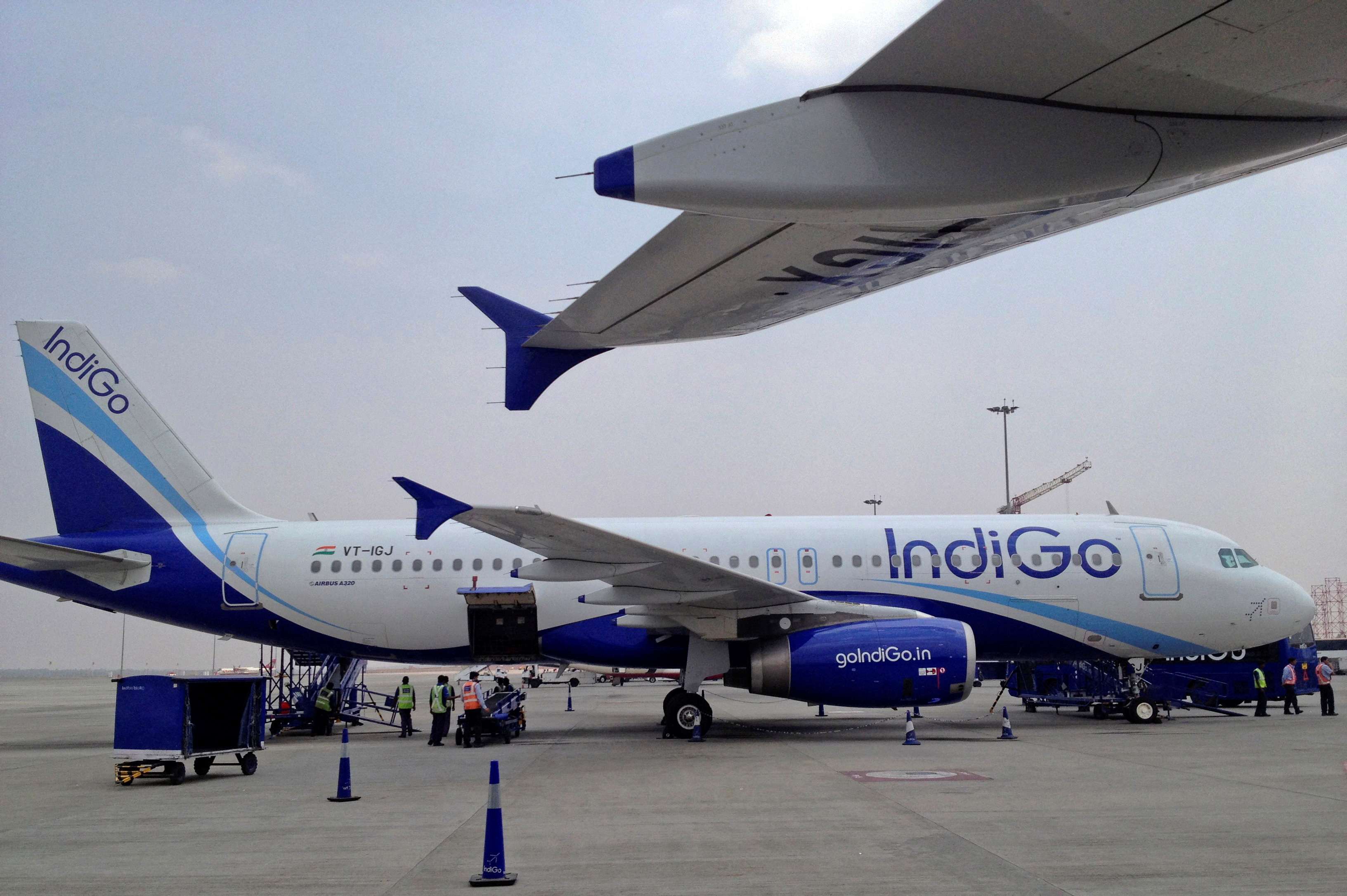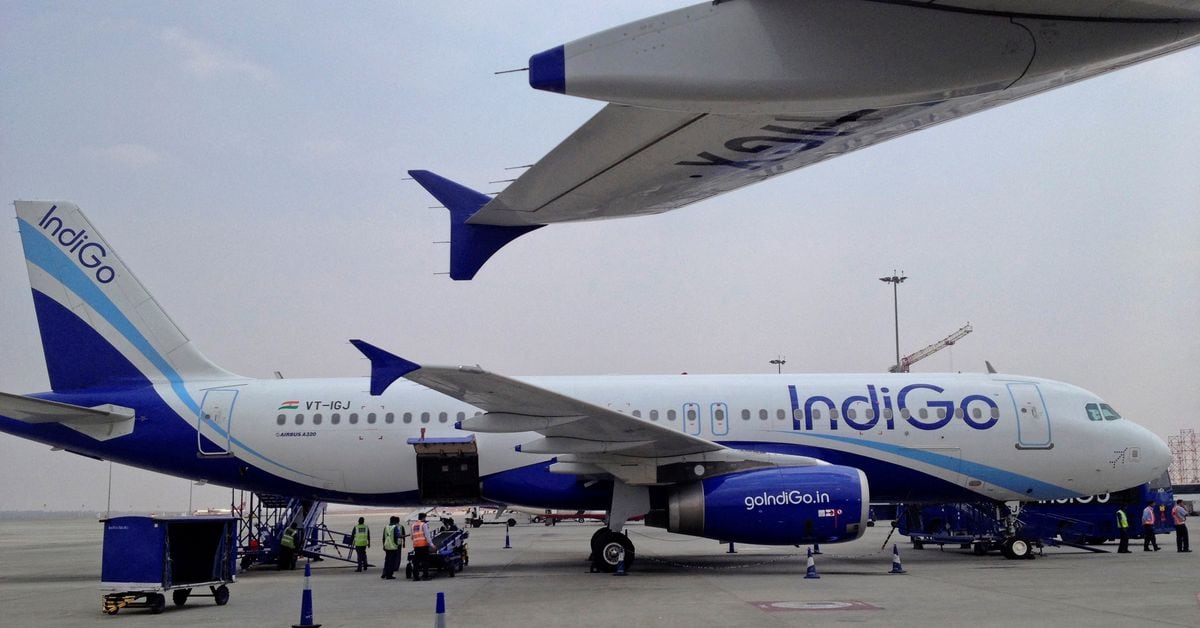Airbus heads towards 500-jet IndiGo order
By Tim Hepher, Aditi Shah
and Joanna Plucinska
June 4, 20232:56 PM UTCUpdated ago

An IndiGo Airlines A320 aircraft is parked on the tarmac at Bengaluru International Airport in Bangalore March 7, 2012. REUTERS/Vivek Prakash/File Photo
ISTANBUL, June 4 (Reuters) - Airbus (AIR.PA) is closing towards a potentially record deal to sell 500 narrow-body A320-family jets to India's largest carrier IndiGo (INGL.NS), industry sources said on Sunday.
The European planemaker has emerged as front-runner for an order eclipsing Air India's historic provisional purchase of 470 jets in February, the sources said on the sidelines of an airline industry meeting in Istanbul.
Such a deal would be worth some $50 billion at the most recently published Airbus list prices, but would typically be worth less than half this after widespread airline industry discounts for bulk deals, according to aircraft analysts.
Airbus and Boeing (BA.N) are also competing in separate talks to sell 25 A330neo or Boeing 787 wide-body jets to the same airline, they said.
IndiGo Chief Executive Pieter Elbers, attending the annual meeting of the International Air Transport Association in Istanbul, declined to comment on commercial matters.
Airbus and Boeing also declined to comment.
Reuters first reported in March that IndiGo, which has a 56% share of the domestic Indian market, was in talks with both Airbus and Boeing for the order, which if confirmed would be the largest by a single airline ranked by units.
IndiGo's potential new order comes as it is yet to take delivery of nearly 500 jets out of a total order of 830 Airbus A320-family planes, making it one of the largest customers of the European group.
Airbus and Boeing have been racking up billions of dollars of new orders stretching beyond 2030 as airlines lock in supplies well ahead amid looming shortages.
Indian carriers now have the second-largest order book, with over 6% share of the industry backlog, behind only the United State, according to a June 1 report by Barclays.
The bullish outlook by IndiGo comes as the world's third-largest aviation market is seeing a strong rebound in travel post-COVID, with domestic and international passenger numbers surging despite high fares.
IndiGo aims to double its capacity by the end of the decade and expand its network, especially in international markets, Elbers told analysts last month during an earnings call.
The airline has a codeshare partnership with seven carriers including Turkish Airlines, American Airlines and KLM.
The alliance with Turkish Airlines has seen IndiGo make a major push into Europe, a favourite holiday destination among Indians, with the budget carrier now offering flights to 33 European airports.
In a departure from its single-aisle strategy, IndiGo earlier this year began international operations to Istanbul with a Boeing 777, its first wide-body aircraft, taken from codeshare partner Turkish Airlines, which provides the pilots.
Taking on the two widebodies is a stop-gap arrangement for IndiGo which needs the capacity until it takes delivery of the longer range Airbus A321XLR planes in 2025-ish timeframe, Elbers told Reuters in an interview in March.
In the meantime, this will help the budget carrier build its brand outside India, where it is little known, and prepare for future expansion, he had said at the time.
Reporting by Tim Hepher, Aditi Shah and Joanna Plucinska; Editing by Hugh Lawson and David Holmes

Airbus heads towards 500-jet IndiGo order
Airbus is closing towards a potentially record deal to sell 500 narrow-body A320-family jets to India's largest carrier IndiGo , industry sources said on Sunday.




